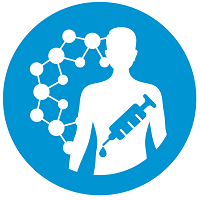Preclinical, Clinical, and Translational Sciences
Rapid Fires: Designing and Delivering Effective Clinical Trials for Specific Populations 2
Multiplexed Targeted Proteomics for Translating Research Discoveries into Clinical Utility
Tuesday, November 11, 2025
3:00 PM - 3:15 PM CT
Location: 225 CD
.jpg)
Sudhir Putty Reddy, PhD (he/him/his)
Sr. Principal Scientist
Bristol Myers Squibb
Princeton
Rapid Fire Speaker(s)
Targeted proteomics, which is an antibody-free approach offers capabilities such as multiplexing, high specificity, and quantification of up to 100 proteins (# depends on LC gradient) in tissue biopsy or biofluid samples. For instance, Roche has developed targeted proteomic assays to identify triple-negative breast cancer. Similarly, Moffitt Cancer Center showed it’s application in lung cancer treatment selection and clinical trial enrollment (Sudhir P.R., et al., J. Proteome Res. 2023).
Our discovery study identified 41 urinary prognostic markers associated with HFpEF cardiovascular disease (Carland C. et.al., J Am Heart Assoc. 2024). Here, we developed a targeted proteomics assay to verify these 41 protein markers in human urine samples to correlate with clinical outcomes. We will discuss fit-for-purpose assay development and qualification parameters, the proteomics pipeline for sample preparation, and analytical aspects of Sciex 7500 QQQ-MS and Evosep LC system. This study highlights our in-house capabilities in targeted proteomics assays for understanding the treatment of HFpEF disease.
Our discovery study identified 41 urinary prognostic markers associated with HFpEF cardiovascular disease (Carland C. et.al., J Am Heart Assoc. 2024). Here, we developed a targeted proteomics assay to verify these 41 protein markers in human urine samples to correlate with clinical outcomes. We will discuss fit-for-purpose assay development and qualification parameters, the proteomics pipeline for sample preparation, and analytical aspects of Sciex 7500 QQQ-MS and Evosep LC system. This study highlights our in-house capabilities in targeted proteomics assays for understanding the treatment of HFpEF disease.
Learning Objectives:
- An overview of targeted proteomics assay development and qualification
- A summary on sample processing pipeline for targeted proteomics
- A technical brief on quality control of the LC-MS/MS assay


